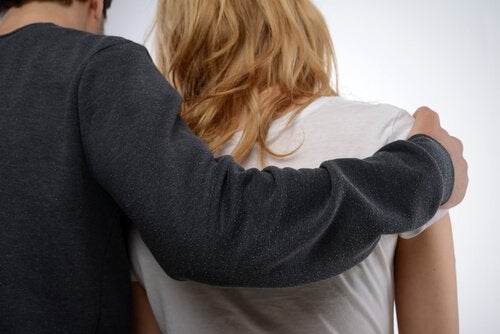What to do with a mental health case in the family?
The human species has always feared mental illness throughout history and, in many cases, this has happened because they were not understood, the search for explanations (paranormal, scientific or religious), the search for treatments, the improvement of the lives of people who are victims of a mental health problem?It’s the survival story adapted to our species since we started talking about diseases.
- In the field of mental health.
- In severe or chronic disorders.
- There is a particular sensitivity to the punishment that represents the stigma associated with these problems.
- With the closure of obsolete establishments.
- This type of pathology has become known in daily life.
- Inertia is going to rehabilitation (when recovery is not possible).
- The greatest difficulty concerns families who have children.
- Parents.
- Uncles.
- Or siblings with problems beyond their understanding and understanding.
“Mental pain is less dramatic than physical pain, but it is more common and also harder to bear. -S. Lewis-
The family is the first to begin to suffer and worry. She, too, is usually the first to realize that there is something “wrong. ” Our parents experience changes in behavior, emotions, and thoughts.
Usually the start is quite complicated. It involves confusion, misunderstanding, changes in diagnosis, coming and going of medical appointments and even partial denial of the situation. We see our son, brother or father suffer or behave in a way we never imagine. Most importantly, we are witnessing this person’s life gradually collapse. The person is the same, but at the same time it is not.
According to WHO, mental health refers to “how to behave with people in the family, at work, in free time and in the community at large”. When our loved one changes this balance, we suffer, challenge, question, blame ourselves, and look for a thousand alternatives.
At some point it is common to experience anger, resentment and frustration, the family is the backbone of a person with such problems, support, understanding, tranquility and balance are fundamental.
“Mental health requires a lot of attention. It is a great taboo that must be faced and solved. -Adam Ant-
Behind each person is a family history, a structured story in known adaptation phases, in which all these thoughts and emotions come together, we are talking about the alert phase, the resistance phase and the exhaustion phase, depending on where we are, we will receive advice or other advice to assimilate what is happening, so field studies serve to guide and apply the best ways to treat a mental health case in the family.
After all the above tumult, in which family, loved one and friendships become unbalanced, it is customary to arrive at the definitive diagnosis of the mental health problem and when to face change with serenity.
“Common sense: a kind of contagious health”. -Alberto Moravia-
The family is a fundamental part of stability and recovery. Maintaining a quiet environment at home and in the family will directly contribute to the success of treatment/therapy. Motivation and the fight against despair and discouragement are strengthened by the emotional balance of the house. The need for ventilation is normal. Ideally, do not reject all this emotion in the family and channel all the primary and secondary emotions that may appear.
Despite the challenges, it should never be forgotten that many people with a mental health problem are able to function independently, work, maintain a circle of friends, and be part of a family group. If you have discovered a case of mental health in the family, do not be discouraged! Knowing the disease, its processes and maintaining an adequate and adjusted treatment, it is very possible to recover something of normality, depending on the problem, of course.
“Un expressed emotions never die. They are buried alive and come out worse afterwards. -Sigmund Freud-

